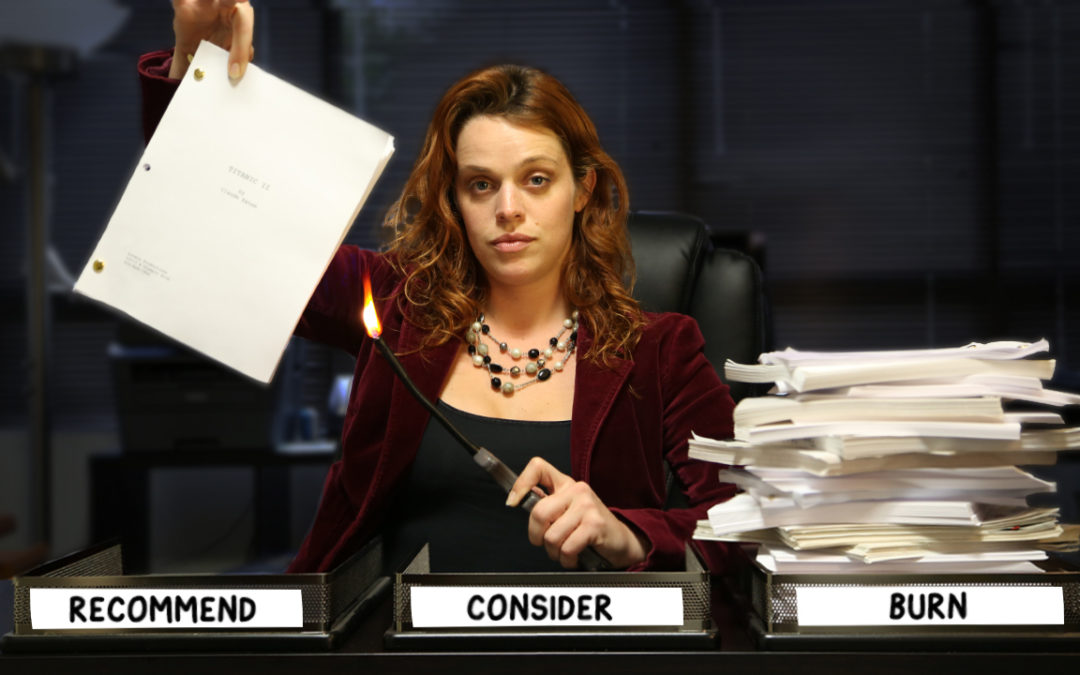Whew! You took our advice and now you have a finished script! Maybe you’ve even done some rewrites. Finally, your work is ready to be seen by another set of eyes. Or is it? No matter how great your story is, how much talent and hard work you put into it, these five mistakes can kill your script before the reader even gets off the first page. Competition is stiff enough as it is, so don’t disqualify yourself from consideration by falling into one of these avoidable traps.
1. Formatting/spelling errors
Incorrect formatting is one of the first signs of an amateur. It’s absolutely worth investing in the right scriptwriting software program to ensure your work shines. Similarly, spelling errors stand out as unprofessional and can distract from the story itself. As a public service, we offer this free piece of spelling advice: Yeah is not spelled ya, yay, or yah.
2. Typos
Much like spelling, this should be an obvious one. Double, then triple check for those typos. This includes homophone confusion, character name changes, and standard capitalizations. Many readers employ a three strikes policy. First typo? “It’s an oversight, could happen to anyone.” Second typo? “Hmm…a little careless.” Typo number three? “Buh-bye!” If you haven’t bothered to thoroughly read your own script before sending it out, why should someone else?
3. Over-the-top, ridiculously long, unnecessarily elaborate descriptions
Wallowing in elaborate but irrelevant descriptions will slow your readers down and distract them from what is really important. It’s great if you have a clear and specific vision in your head, but most readers don’t care what color the furniture in the room is, for instance, unless it reveals something essential to the story. This extends to character descriptions as well. If you have to choose between art and economy, simpler is always better.
4. Camera actions
Don’t get too caught up in the technical aspects of shooting the film. Filling your script with slow push ins, rising crane shots, and single unbroken takes can pull your reader out of the moment, shifting their focus from the story to the logistics of shooting. To put it simply, don’t tell us about the camera. We ARE the camera. Tell us what we are seeing, and keep us immersed in the world of you’ve created.
5. Speaking the subtext
A common script problem, particularly in early drafts is that characters often say exactly what they are thinking or feeling. This always reads as false, because real people are rarely willing or able to articulate their exact thoughts and needs. Also, this is inherently incompatible with good drama, which depends on communication failures to create conflict. Make sure your characters talk around their problems, hide their desires, and reveal their true intentions through their actions not their words.

